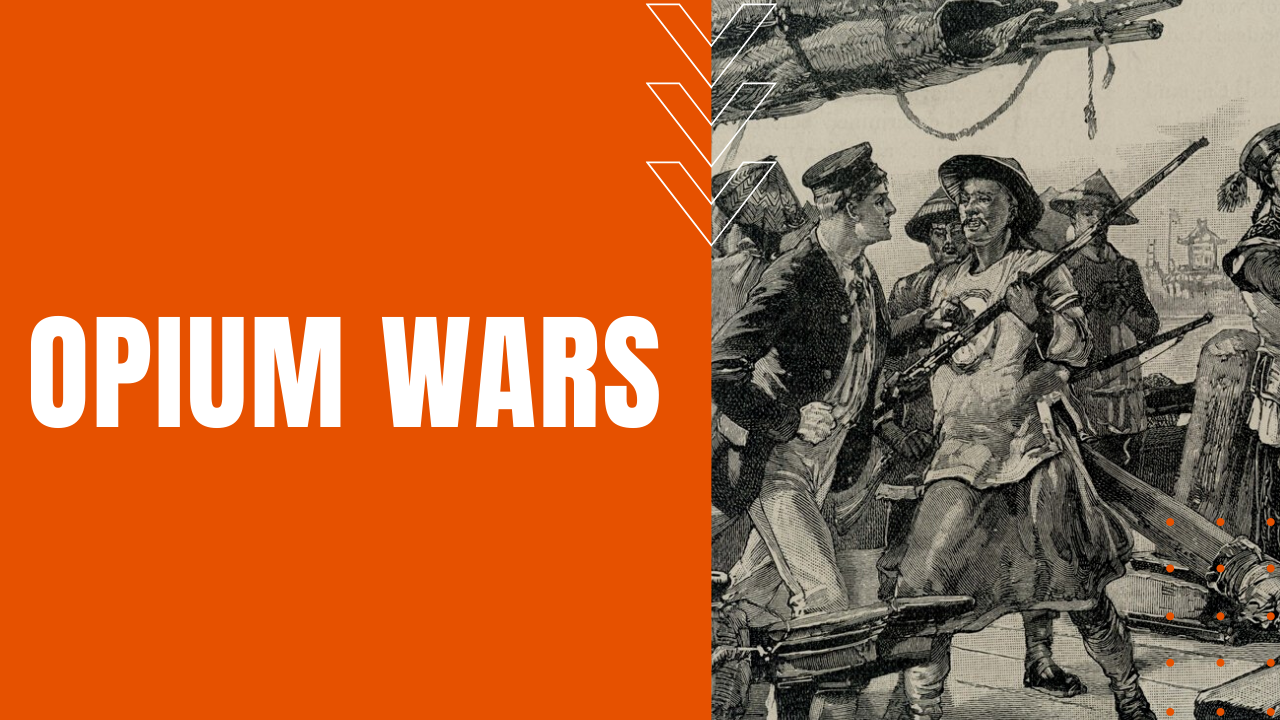Opium Wars

In earlier times, opium was perceived in China as a relatively harmless medicine, but a new practice arose in the eighteenth century of smoking opium recreationally, which vastly increased demand, while leading to the widespread addiction of the Chinese population.
In an attempt to curb the growing problem, Chinese Qing dynasty emperors drafted a succession of laws from 1729 to 1831, which made the drug illegal, yet imports continued to grow as smugglers and corrupt officials gorged on massive profits.
Before the first Opium War, China enjoyed a favorable trade balance with Europe, selling porcelain, silk and tea in exchange for silver. In the late 18th century, however, the British East India Company expanded cultivation of opium in its Indian Bengal territories, selling it to private traders who transported it into China and passed it on to Chinese smugglers.
What Caused the Opium Wars?
By 1787, the Company was sending 4,000 chests of the drug annually into China—each containing 170 pounds of opium—creating a nation of addicts which the Qing dynasty sought to eradicate. By 1833, opium trafficking into China had soared to 30,000 chests a year.
As a result, two wars waged between the Qing dynasty and the Western powers using the Chinese populace as a profit generator. The first Opium War was fought from 1839 to 1842 between the Qing dynasty and Great Britain, while the second was fought between the Qing dynasty, Great Britain, France and Russia from 1856 to 1860.
What Was the Result of the Opium Wars?
In each war, European soldiers and naval assets employed superior military techniques to defeat Qing belligerents, compelling the Chinese to grant favorable tariffs, trade concessions and territory, including the transfer of Hong Kong to Great Britain.
The two wars resulted in the Treaty of Tientsin on June 26th, 1858, forcing China to pay reparations for the expenses of both wars, while expanding the number of ports open to European commerce. The treaty also legalized the opium trade, granting foreign traders and missionaries full rights to travel freely within China.
